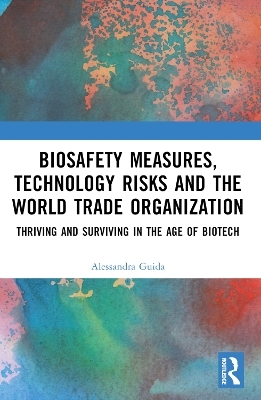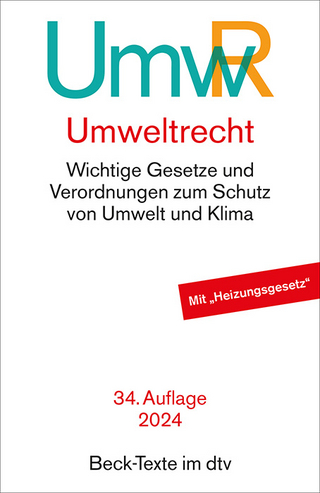
Biosafety Measures, Technology Risks and the World Trade Organization
Routledge (Verlag)
978-1-032-35187-2 (ISBN)
This book examines the work of the World Trade Organization (WTO), with a focus on the capacity of its judiciary to strike a reasoned balance between free trade in biotechnology and biosafety as to promote the 2030 Agenda for Sustainable Development and its Sustainable Development Goals. By adopting an innovative interpretation of the precautionary principle and proportionality analysis, the work offers normative suggestions to develop what the author terms “a constructive bridge of knowledge” between decision-makers, scientists, social experts and expert witnesses, which can support a judicial balance by design rather than by chance.
Biotechnology is sometimes regarded as a panacea for modern-day challenges, such as feeding a growing world population and counteracting climate-change problems, and a means of offering significant economic opportunities. However, biotechnology can present uncertain, though serious, risks to human health and the environment (i.e., biosafety). Trading biotech products magnifies these risks and benefits globally. This book explores the topical, though still underexplored, question of how to find a point of equilibrium between the revolutionary advancement offered by technology and the need to safeguard biosafety from uncertain, though potentially irreversible, technology risks. It offers a thorough analysis of normative, judicial and epistemic issues hindering a reasoned balance between trade and non-trade interests under the WTO. The work offers practical relevance for the resolution of legal disputes in contexts of uncertainty, as well as innovative theoretical contributions.
It will be a valuable resource for policymakers working on precautionary governance and management, scholars in the areas of trade law, human rights law and environmental law, law students and practitioners, as well as NGOs working in the field of new technologies, biosafety, sustainability and food safety.
Alessandra Guida is Lecturer in Climate, Justice & Human Rights | Law and the Challenges of Technology | Corporate Environmental Law | Clinical Law in the School of Law at Queen’s University Belfast.
Acknowledgements
List of Treaties and Declarations
List of Cases
List of Figures and Tables
Glossary
PART I Context – international trade in biotechnology
1 International trade in biotechnology and protection of biosafety: an uneasy combination
PART II Addressing normative, judicial and epistemic challenges in trading biotechnology under the WTO
2 Normative, judicial and epistemic challenges for the WTO: free trade and biosafety
3 Proportionality analysis to address WTO normative and judicial challenges in the context of biotechnology
4 The precautionary principle to address WTO epistemic challenges in the context of biotechnology
PART III Analysis of WTO biotechnology legal disputes
5 Introduction to and key reasons for a critical analysis of WTO biotechnology legal disputes
6 Allocation of the burden of proof to establish a prima facie case and standard of review to examine biotechnology matters: preliminary issues in the WTO jurisprudence on biotechnology
7 Adopting precautionary measures on biosafety in contexts of sufficient scientific evidence
8 Adopting precautionary measures on biosafety in contexts of insufficient scientific evidence
PART IV Final insights
9: Conclusion
Index
| Erscheinungsdatum | 10.01.2023 |
|---|---|
| Zusatzinfo | 8 Tables, black and white; 4 Line drawings, black and white; 1 Halftones, black and white; 5 Illustrations, black and white |
| Verlagsort | London |
| Sprache | englisch |
| Maße | 156 x 234 mm |
| Gewicht | 653 g |
| Themenwelt | Recht / Steuern ► EU / Internationales Recht |
| Recht / Steuern ► Öffentliches Recht ► Umweltrecht | |
| ISBN-10 | 1-032-35187-X / 103235187X |
| ISBN-13 | 978-1-032-35187-2 / 9781032351872 |
| Zustand | Neuware |
| Informationen gemäß Produktsicherheitsverordnung (GPSR) | |
| Haben Sie eine Frage zum Produkt? |
aus dem Bereich


